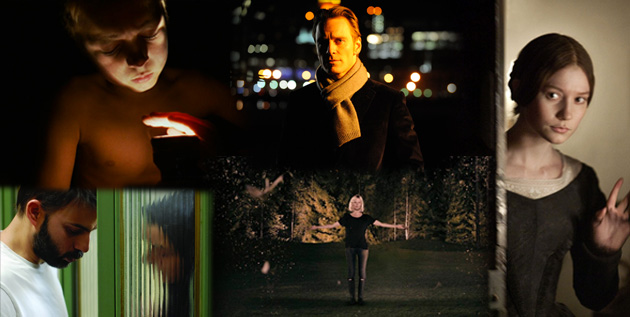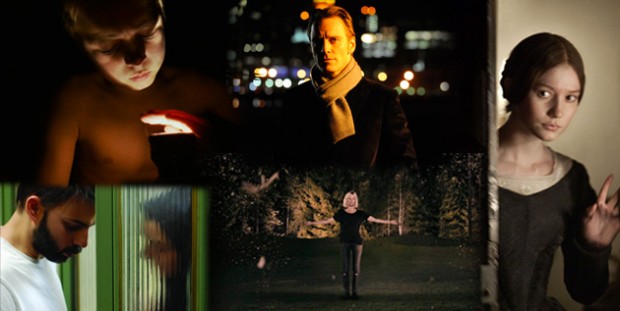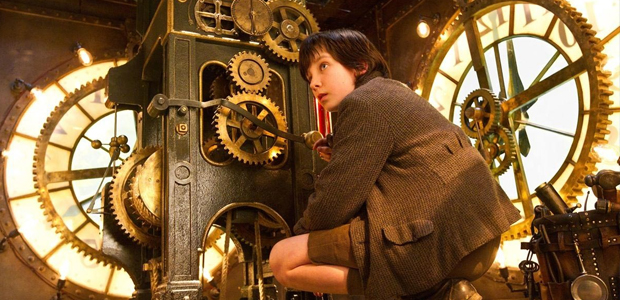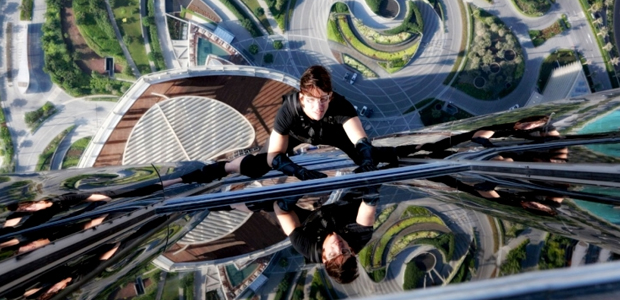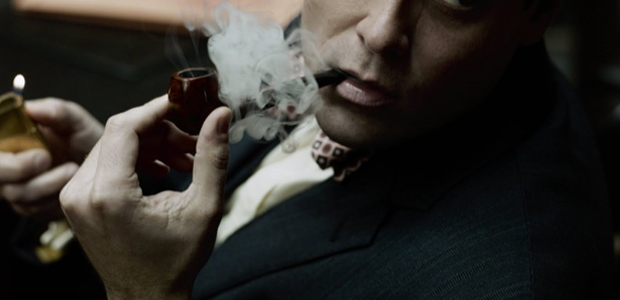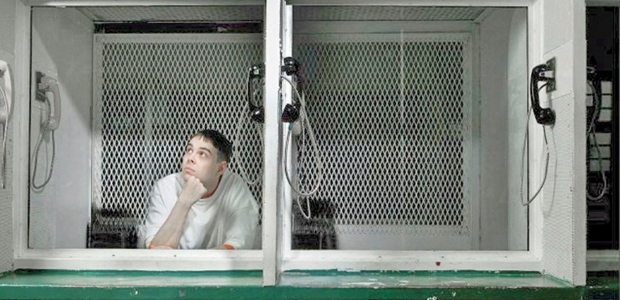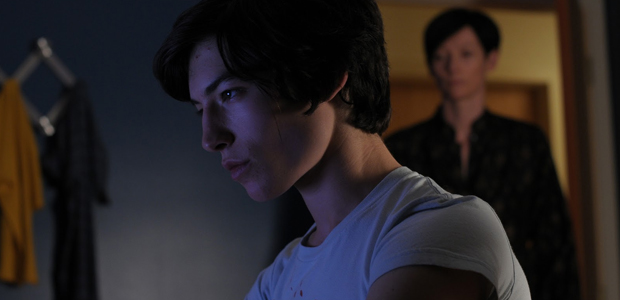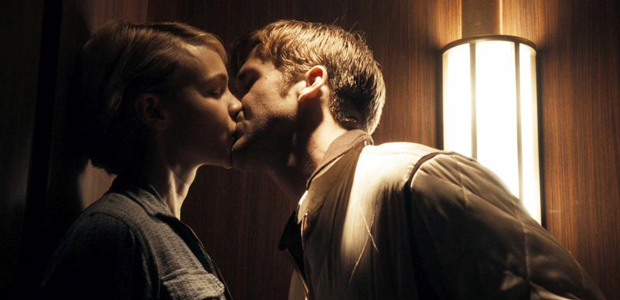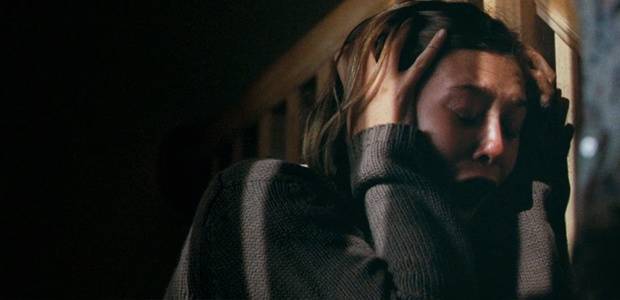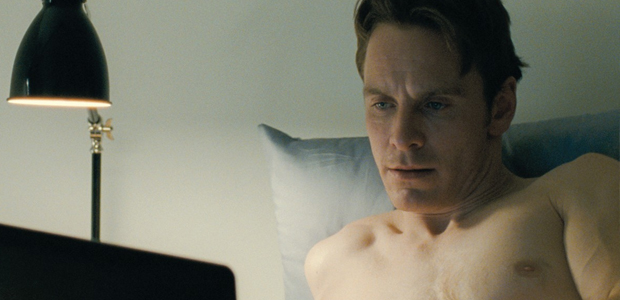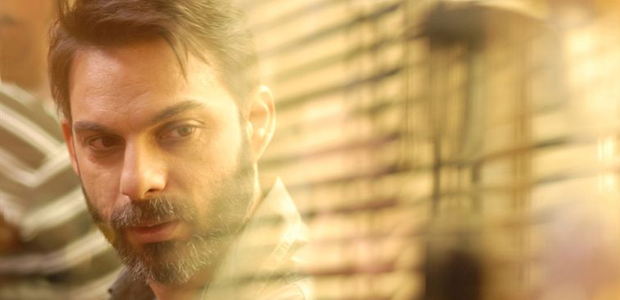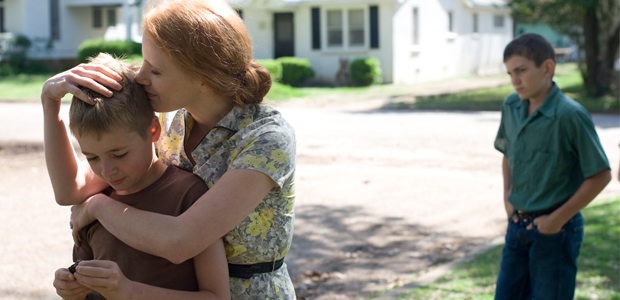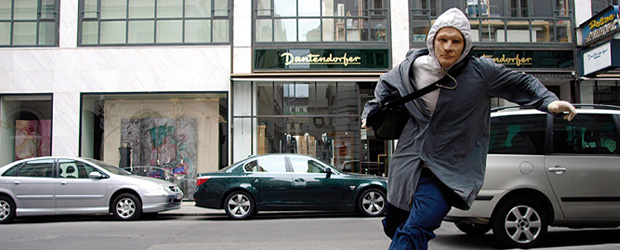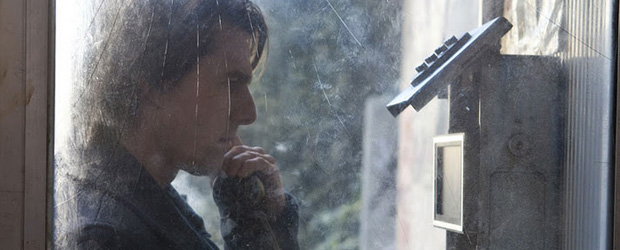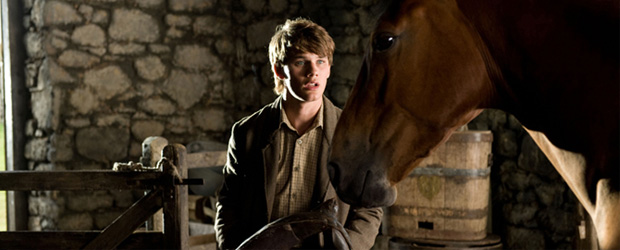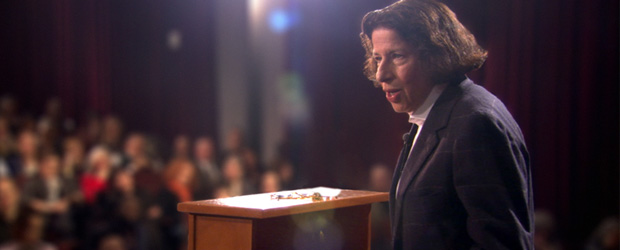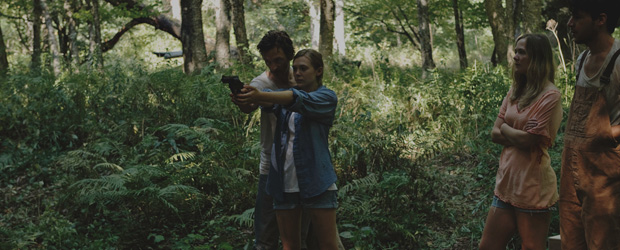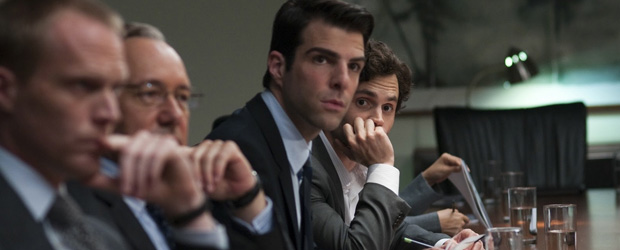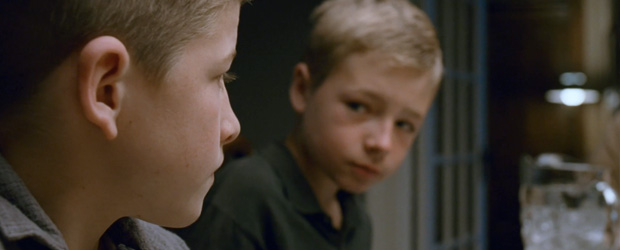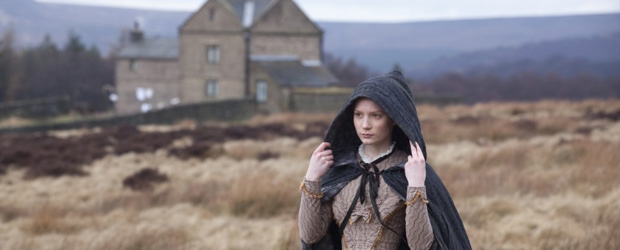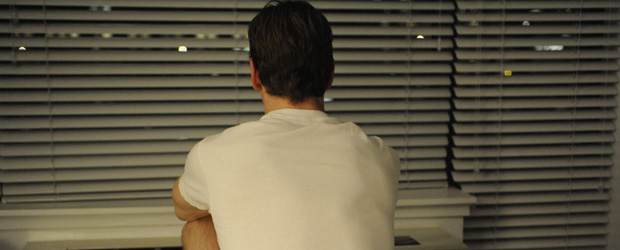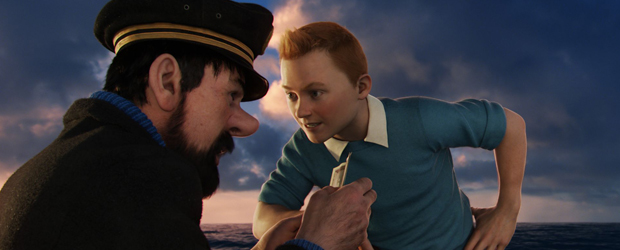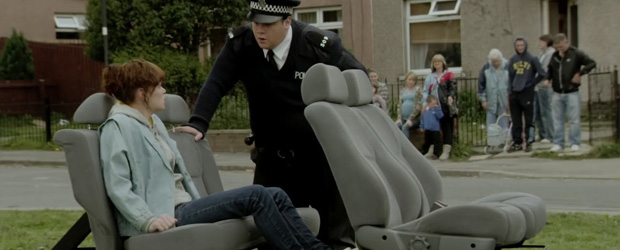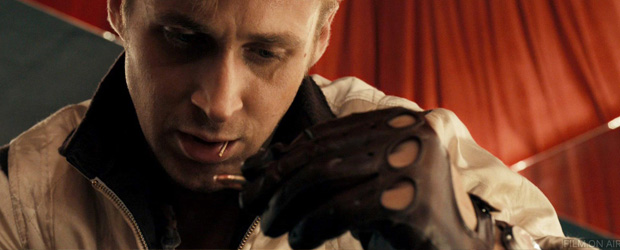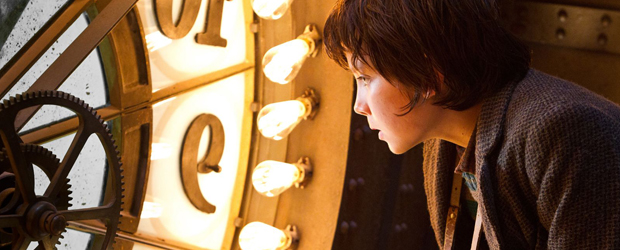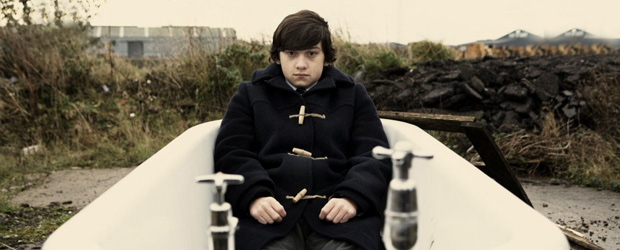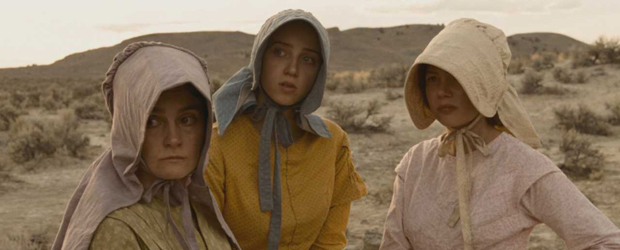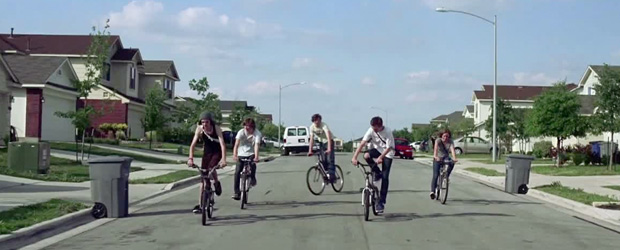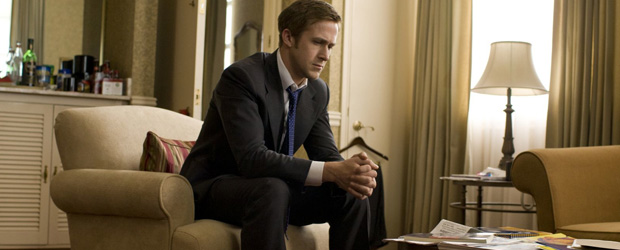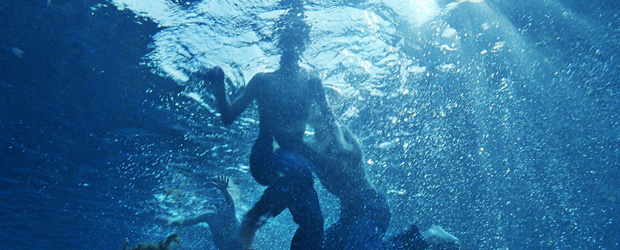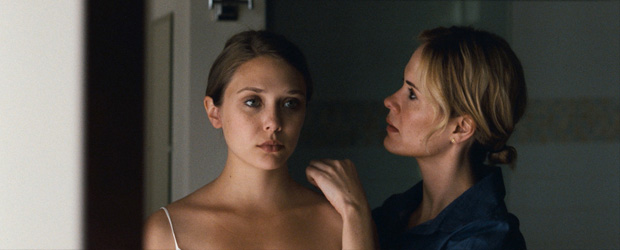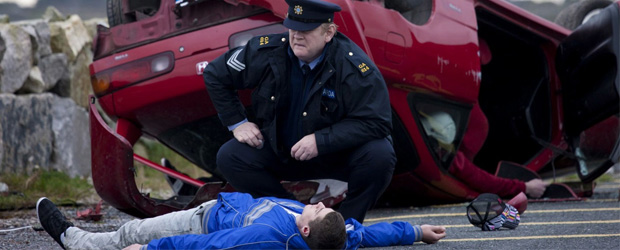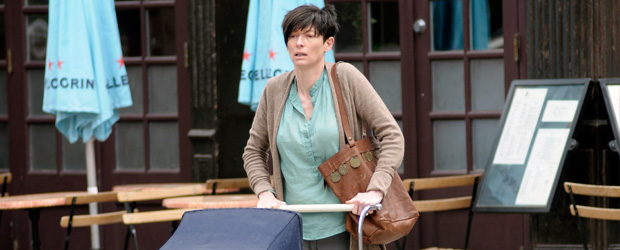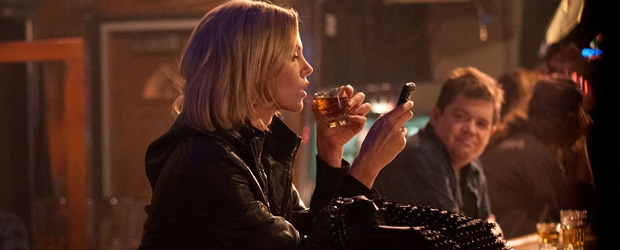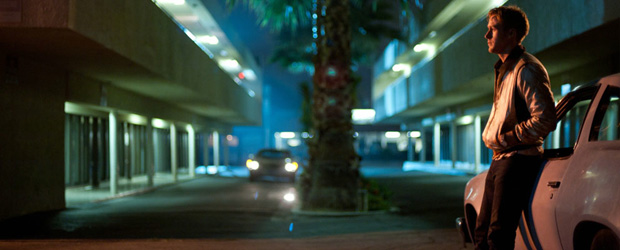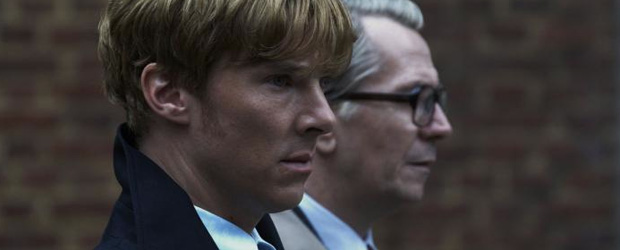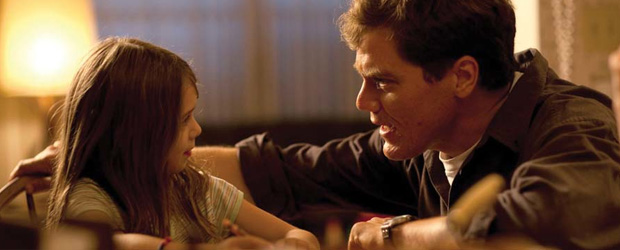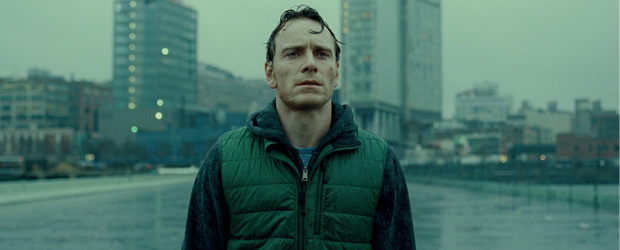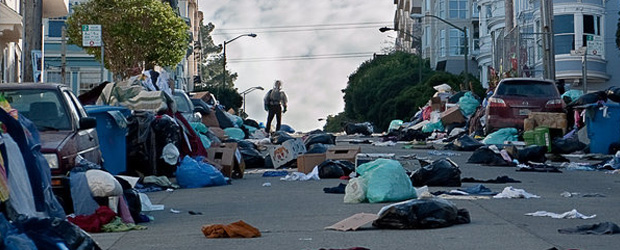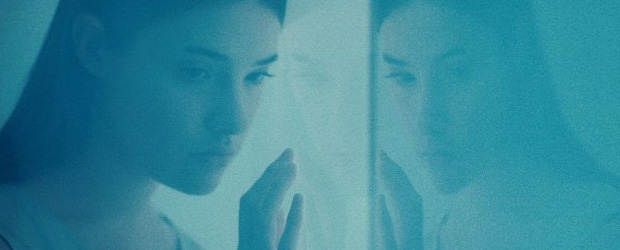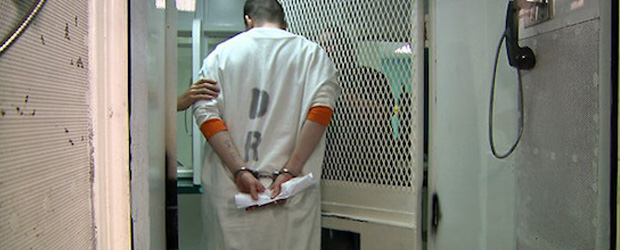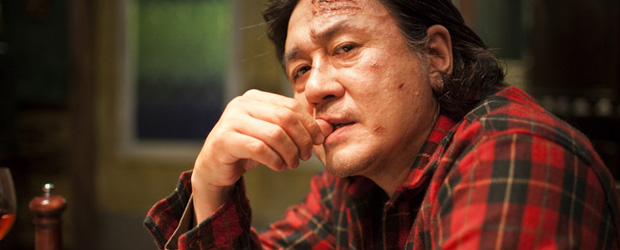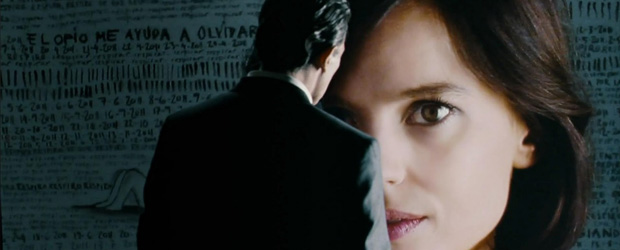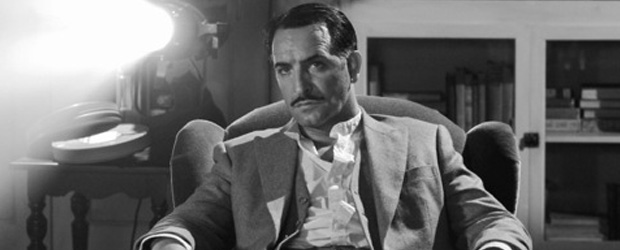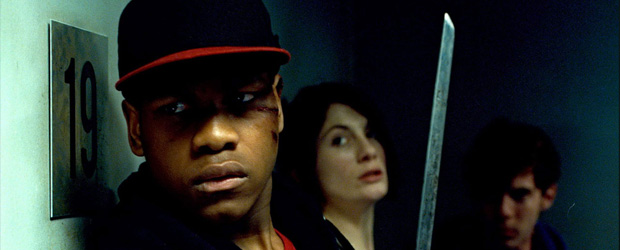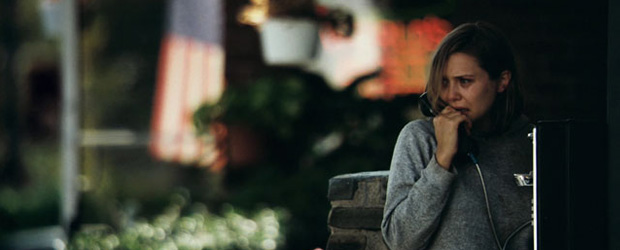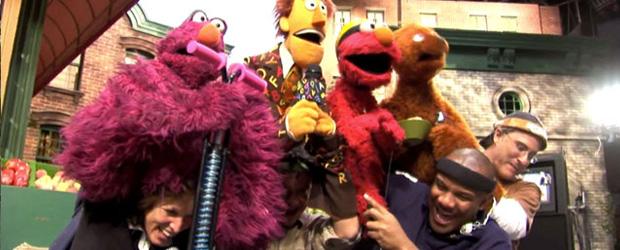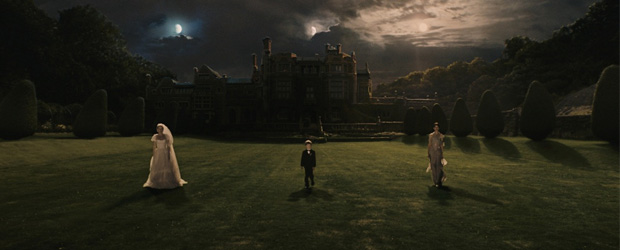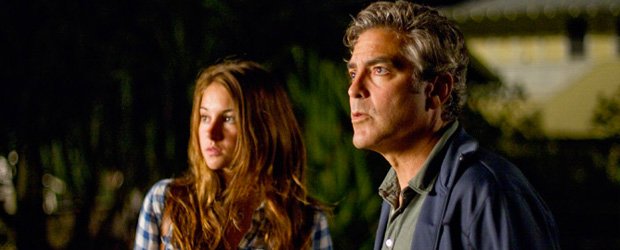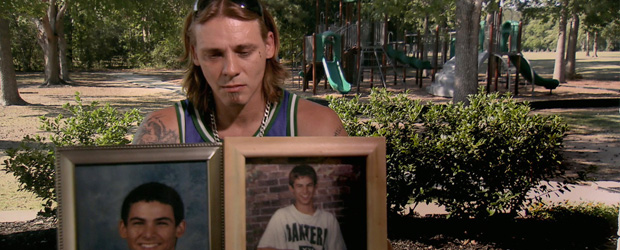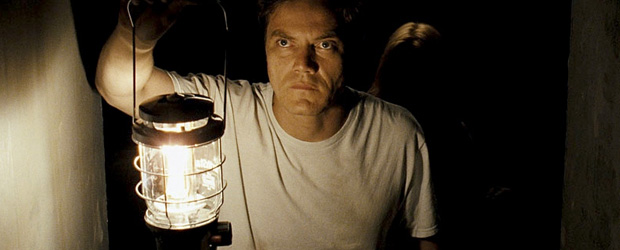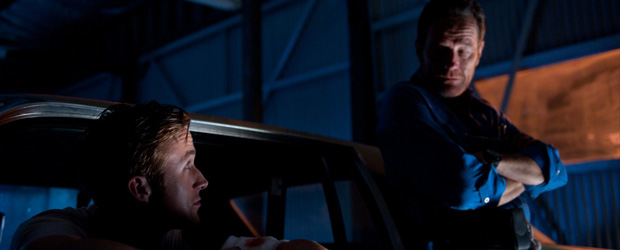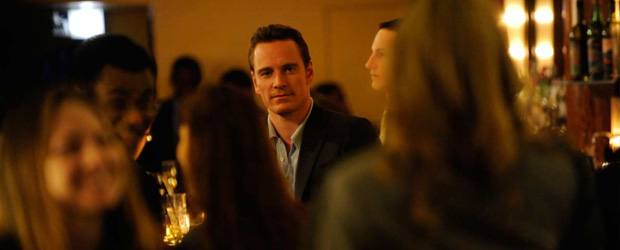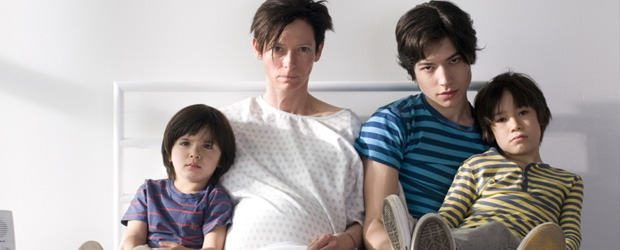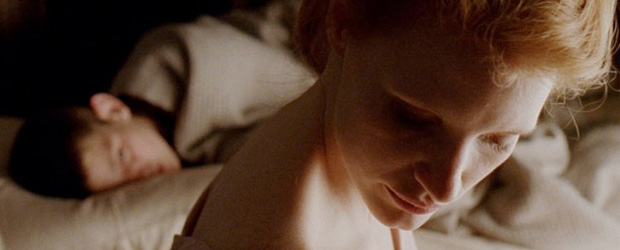After highlighting other areas in film this year (here), it is time to share our favorites. Compiled in eight separate lists featuring over 100 films, you will find everything we’ve loved over the last 365 days. It was difficult to cut down my personal list, as this year has been full of many quality films I would love to highlight, with almost 350 viewed. Our hope is one will use this feature to catch up on any missed films, revisit the ones that you’ve adored and give others a second chance. I kick off things below, then look for links at the bottom of each page to venture further.
Jordan Raup’s Top 10 of 2011
Honorable Mentions:
10. Hugo (Martin Scorsese)
Here is living proof that 3D should only be used in the hands of veteran filmmakers. Martin Scorsese matches his adoration for cinema with a inquisitive eye into new technology in Hugo. Every frame is magical and as one slowly realizes what the director is really after here, it becomes one of the most enchanting films of the year, with an added vital dose of history .
9. Mission: Impossible – Ghost Protocol (Brad Bird)
Proving not only to be the most enjoyable time I had at a theater this year, the latest entry in the Mission: Impossible series is, hands down, one of the best action films in the last few years. Transitioning from animation to live-action, director Brad Bird delivered a spectacle like no other with his vertigo-inducing usage of IMAX cameras and pitch-perfect pacing. Our hardest-working and most intricately-woven team yet battle a villain with one clear motive that leaves the fate of the world in their hands. This powerhouse December release makes all of its summer blockbuster predecessors pale in comparison.
8. Tinker, Tailor, Soldier, Spy (Tomas Alfredson)
On the other side of the spy coin is Tomas Alfredson‘s finely-tuned, quiet examination of top-secret British operatives. Featuring the best ensemble of the year, this initially frustrating adaptation of John le Carré’s classic novel opens up with countless rewards on multiple viewings. Tiny revelations in each scene, whether it be a picture on a wall, a quick glance, a insert of shoes or a single phone call, add up to a stirring visual portrait of paranoia by Alfredson.
7. Into the Abyss (Werner Herzog)
A film has rarely faced death with such a delicate touch as Werner Herzog‘s Into the Abyss. More compelling and satisfying then his other over-praised documentary of 2011, the erratic filmmaker takes a single death row murder case and extends his grip on every human being touched by tragedy. Whether it is a heartbroken, jailed father who knows he is at fault for his son’s reprehensible actions, a former death row worker whose job was eating away his soul, or a young man who has made peace with death, the chills down my spine as I type this confirm Herzog has made a permanent impact on my life with his latest work.
6. We Need To Talk About Kevin (Lynne Ramsay)
Lynne Ramsay’s visual feast excels at conveying plot points without any rambling exposition. Anchored by astounding performances from Tilda Swinton and Ezra Miller, this is one of the year’s best horror films, showcasing the very worst of family dysfunction.
5. Drive (Nicolas Winding Refn)
When my overarching praise for a film is the unparalleled “cool” factor, it might seem slight. But if you’ve seen Drive then you know the praise is warranted, as there was no sleeker nor boldly stylish time at the movies this year. Drenched in a thick, wonderful coat of surging synthpop, Refn makes sure every single cut counts in this finely engineered beast. When going down a few floors on a elevator can be as pulse-pounding as a car chase through Los Angeles, then you know there is a budding master at work here.
4. Martha Marcy May Marlene (Sean Durkin)
Ever since seeing Sean Durkin‘s striking debut nearly a year ago on a cold night at Sundance, I knew the film would be high on my best-of list of the year. Much-praised for Elizabeth Olsen‘s break-out debut (and it remains my favorite performances of the year), this is much more than just an acting showcase. Through the stark cinematography and tight, focused screenplay, Durkin’s examination of a torn psyche literally distorted my thought process for some time after both theatrical viewings.
3. Shame (Steve McQueen)
What some filmmakers take an entire page of dialogue to convey, the master British filmmaker Steve McQueen can portray in a single action. With his sophomore effort he extends his skill to the topic of sex addiction, a struggle that can be parsed out to many areas of our lives. Michael Fassbender proves yet again he is a break-out star at the top of his game as he commands the screen in every single scene.
2. A Separation (Asghar Farhadi)
Farhadi’s intensely intimate human drama snuck up on me like few other films this year. A seemingly standard first act leads to one of the most well-written and acted films of the year. A mistake (or is it?) spirals out of control as accusations are thrown about and character is questioned by your closest companions. Farhadi makes sure to give a consequences to each action, but brilliantly backs away from inserting his own opinion or blame. Capping off with the best ending of the year, I’ve been thinking about all my precise actions since the first viewing.
1. The Tree of Life (Terrence Malick)
As vast as the galaxy portrayed in the film is the divide between Terrence Malick‘s ambitious masterpiece and the other films on my list this year. No other cinematic experience left such a staggering impact on me than this story of life, death, the universe…well, everything. Perfectly scattered and purposefully frustrating, Malick’s grand experiment peers into humanity itself, with awe-inspiring bookends of how it came to be and its eventual destruction.
Dan Mecca’s Top 10 of 2011
It’s been a strange year for movies. While there have been more than a few very good films, there have been precious few great films (two to be exact). And though 2011 featured many films from established, original minds, most were ambitious, flawed exercises. These include Drive, The Skin I Live In, J. Edgar, Shame, Hugo and Margaret, the latter honorably mentioned despite itself.
That said, 2011 was the year of the impressive directorial debut. Whether it be Max Winkler‘s small, smart, superb dramedy Ceremony or Evan Glodell‘s strange, fascinating, low-budget epic romance Bellflower (just missing this list), if this year of cinema taught us anything, it’s that there will be plenty of great stories to come, by talented new storytellers.
Honorable Mentions:
10.The Robber (Benjamin Heisenberg)
Part heist film, part inspirational runner’s tale, all an examination of the criminal mind. Heisenberg’s high-octane take on the true story of marathoner runner/bank robber Johann Rettenberger moves at an impressive clip yet finds the time to meditate on why we love the thrill of the chase.
9. Mission Impossible: Impossible – Ghost Protocol (Brad Bird)
Brad Bird’s live-action debut does exactly for 2 hours what filmmakers like Michael Bay can only sustain for around 40 minutes: pure action entertainment. Taking what he made gold for Pixar, Bird uses his star Tom Cruise as the asset he is, literally throwing him around the tallest building in the world and up and down the most aggravating parking garage to ever exist. Here, Bird reminds us why we buy popcorn when we go to the movies.
8. War Horse (Steven Spielberg)
Spielberg at his best. This tale of a horse who lives through World War I is more of an anthology film than any of the trailers/posters let on. Featuring several short stories across the European countryside, Spielberg produces one of his most uplifting, supremely-crafted pieces of entertainment in some time.
7. Public Speaking (Martin Scorsese)
A film which primarily consists of writer Fran Leibowitz talking with (really at) Martin Scorsese for around 80 minutes about all manner of subjects. From her struggles to write a novel, to her addiction to smoking, to America’s ever-changing opinion about homosexuality, Leibowitz provides perhaps the best comic relief of the year.
6. Martha Marcy May Marlene (Sean Durkin)
One of the most impressive directorial debuts of the year, Durkin’s psychological film refuses to talk down to its viewer. Instead, his film lives in a gray area. Studying a young woman (the wonderful Elizabeth Olsen) who’s just escaped a cult, Durkin is careful to both show the terror the group can cause, and also the peace. The jumbled narrative reflects its heroine’s mind, convinced she needed to escape, but unsure of where to go.
5. Tuesday, After Christmas (Radu Muntean)
Another film that continues to fuel the Romanian New Wave; Radu’s Muntean’s patient, brutal study of infidelity and the path towards it, and then away from it. Beautiful lighting, courtesy of Tudor Lucaciu, allows shots to linger uncomfortably long as the characters search for the right words to say.
4. Moneyball (Bennett Miller)
Finally, a sports film that’s smart, powerful and fresh. That hasn’t happened, arguably, since Bull Durham. Thanks to a spot-on script by Steve Zaillian and Aaron Sorkin, a shining performance by Brad Pitt and the calm, cool and collected direction of Bennett Miller, Moneyball makes baseball statistics the coolest thing to come out of baseball in years.
3. Margin Call (J.C. Chandor)
Well-dressed people talking in rooms. Sometimes that’s all you need. Taking place over one long night in 2008, a group of bankers for a Lehman Brothers-esque firm prepare and discuss the potential downfall of both their company and the financial system at large. Paul Bettany and Simon Baker shine brightest in this superb ensemble piece.
2. The Tree Of Life (Terrence Malick)
The story of life, through the eyes of a Texas family and their struggle with religion, with growing up and so much more. Whether it was the dinosaurs, the Big Bang or the upside-down shots, this film turned a lot of people off. But those who took to it took to it hard, affected by every single image. I’m one of the latter, convinced that this meditative film, when watched under the right circumstances, can be transformative.
1. Jane Eyre (Cary Fukanaga)
Romance at its absolute best. Featuring a mesmerizing score by Dario Marianelli and equally mesmerizing turns from Mia Wasikowska and Michael Fassbender (ever heard of this guy?), Fukanaga’s sophomore effort is some of the most confident, sure-handed direction in some time. The young filmmaker recalls what’s timeless about Charlotte Bronte’s tale of a young independent woman and her tortured, Byronic love Edward Rochester while also infusing modern-day cinematic techniques to breath new life into well-worn narrative.
Nick Newman’s Top 10 of 2011
No matter what some will incessantly argue, every year is a good one for films. 2011 was still special, though, with a glut of offerings from both the art house and multiplex world that were worthy of time, money, and consideration. My list might skew a bit more toward that former side, but a twelve-month span that allows millions to see Source Code or Rise of the Planet of the Apes is worth saluting.
That being said, I have to provide my typical heads up: It must be established that, if the selections seem a little thin, this is only due to the unfortunate fact that many (reportedly) great films were out of my reach. It’s not that I didn’t want to see A Separation, Take Shelter, Tyrannosaur, The Guard, We Need to Talk About Kevin, The Skin I Live In, or Tinker Tailor Soldier Spy, among others — they simply eluded me.
Honorable mentions:
10. Shame (Steve McQueen)
What better way to start off a list than sexual frustration and suffocating feelings of despair? Though Steve McQueen‘s follow-up to Hunger carries neither the thematic weight or emotional punch equal to his debut, shifting from the confined spaces of a prison cell to the freedom of a sprawling metropolis doesn’t sacrifice his immense formal skill. And if you can show me a performance in cinema this year that’s more layered or impacting than Michael Fassbender – wait, don’t bother. Harry Escott‘s devastating score and an unexpectedly funny script from McQueen and Abi Morgan both spice up the grim proceedings, all as Carey Mulligan delivers her best work by leaps and bounds.
9. The Adventures of Tintin (Steven Spielberg)
The finest piece of entertainment from 2011. Motion capture animation is often breeding ground for soulless action fare that’s high on budget but low on passion, but The Adventures of Tintin is Spielberg at his most controlled and, almost-but-not-quite paradoxically, unrestrained in years. The technology here is stunning in how it translates Hergé‘s beloved comics for the big screen, while a mix of humorous dialogue and visual gags are perfect breathers from dazzling action sequences. And, what’s more, the plot isn’t boneheaded. Consider it the film equivalent of candy that doesn’t leave you with a cavity.
8. The Arbor (Clio Barnard)
I’ll admit it upfront: Using a narrative-like form to cover a documentary, then throwing in elements of theater, is a method I don’t fully “get,” but the content of the subject and the piercing emotions warrant such an approach. Despite this impressive feat, The Arbor isn’t begging for your sympathy or attention; it simply lays a cold, hard reality bare. I won’t say much more, only because I’d like to preserve any surprises for those who will (and should) seek this out.
7. Certified Copy (Abbas Kiarostami)
My immediate – and, by “immediate,” I mean “seconds-after” – reaction to Certified Copy was slightly confused. Not at its mechanics, per se, just how I should process the whole experience. But the passing of time has left me increasingly enamored with Kiarostami‘s deconstruction of human interaction and its relation to art, in addition to the knockout turns by Juliette Binoche and William Shimell. Most could simply enjoy this as a romantic treatise with a lovely background; those digging further will be greatly rewarded.
6. Drive (Nicolas Winding Refn)
Drive is a film of surfaces. The roof of a car. The heel of a boot. The Los Angeles skyline. Ryan Gosling‘s face. It’s what’s under these and, in at least one case, what goes under these that propels it into a major work. You could make the argument that it wouldn’t at all function without the guiding hand of Nicolas Winding Refn, but that would discount an incredible collection of pre-existing music that puts us in the character’s mindset, as well as perfect editing from Mat Newman. Add in colorful supporting turns by the likes of Carey Mulligan, Oscar Isaac, Bryan Cranston and, above all else, Albert Brooks, and you’ve got a deluxe experience.
5. Hugo (Martin Scorsese)
I’m almost pre-inclined to enjoy anything from Scorsese, but I found my filmic sensibilities responding to Hugo more strongly than even I could’ve imagined. Seeing one of my favorite filmmakers handle new technology like a young man is enough of an exhilaration; wrapping this around a touching story about the importance of cinema is almost too good to be true. But it isn’t. The magic literally pops off the screen, enveloping you into worlds both beautiful and hazardous. So impressive, as a matter of fact, that it’s easy to forget that Ben Kingsley gives one of the 2011’s best performances, playing someone those reading this owe a great deal to, no less.
4. Submarine (Richard Ayoade)
There’s a temptation to describe this as the best tale of teenage British love Jean-Luc Godard never made, but that’s pigeonholing the film far more than I’d care to. We’ve all seen stories of young people falling in love and getting over their heads; it’s the flavor provided by Richard Ayoade – only in his debut skin, amazingly – which makes it stand apart from so much faux indie fare. The chemistry between Craig Roberts and Yasmin Paige is just as crucial to this movie’s resonance; they feel like people we know and, at certain points, are. Alex Turner‘s original soundtrack is a perfect fit for the ever-so-slight gloom that hangs over every scene.
3. Meek’s Cutoff (Kelly Reichardt)
I knew Meek’s Cutoff was something special as it played. It marinated in my brain during a calming drive home on an early summer’s night – and the film has stayed there since. The quiet tone and somber manner through which ideas are communicated will leave many bored – and I honestly don’t begrudge them this feeling – but, for reasons I’m not fully able to pinpoint, so many barren shots of sparsely-populated fields captivated me to no end. Reichardt depicts the West in a trance-like way, capturing the time and place as an interminable purgatory. There’s also the rich, stimulating allegory for the workings of the United States’ inner self, but that discussion is best saved for another time. Taken as a whole piece, Meek’s Cutoff is one of the most complete films of our currently-short decade.
2. Scenes from the Suburbs (Spike Jonze)
It’s only 28 minutes long? It only showed up at festivals? None of that matters; Suburbs left a bigger imprint on me- in about a quarter of the time – than almost any of the films vying for arbitrary awards at the end of this year. Look: One of my most-beloved bands working with a great director on a project based around an album I hold dearer than words can express is bound to leave a mark. But for it to hit when it did, and for it to have so many mirrors to my own life… that was unprecedented. The feelings that arose during one viewing were so overpowering that, though I love it to pieces, Scenes from the Suburbs is the only film on this list I may never watch again.
1. The Tree of Life (Terrence Malick)
I don’t even know where to start with The Tree of Life. This blindingly ambitious look at parental influence, the nature of existence, the creation of the universe itself, and almost everything else under the sun is almost too much to put into words; yet, somehow, Malick never stumbled. Even if he didn’t hit every mark, stunning imagery, bruising performances and the soundtrack’s overwhelming force would make it something special. But Malick did, and he made a masterpiece. The best film of 2011.
Kristy Puchko’s Top 10 of 2011
It’s been an absolutely exhilarating year in cinema. Sundance stunned with breakthrough debuts (Brit Marling in Another Earth, Elizabeth Olsen in Martha Marcy May Marlene) and charming docs (Being Elmo, Project Nim). The summer brought a bevvy of superhero tales for better (Thor) or worse (Green Lantern), and dealt a powerful blow to the idea that men dominate comedy with Bridemaids dominating the box office, ultimately outgrossing such R-rated guy gross-outs as The 40-Year-Old Virgin, Knocked Up and Wedding Crashers. Then came the fall and the New York Film Festival, which exhibited a wide array of breathtaking films from all over the world, including Melancholia, Pina, The Skin I Live In and The Artist. And now as I prep to endure the chilly air to regularly trek to Spirit Award screenings, I’ve been asked to look back and pick the best of a batch of unforgettable films.
It’s been an embarrassment of riches for film critics and movie buffs, which makes picking only 10 incredibly difficult. But after much thought and an incredible amount of waffling, I have chosen my top 10. For me, it wasn’t so much about which films best realized their goals, but rather which movie best captured my imagination, and refused to let go. Each of the titles below stuck with me for weeks, getting tangled in my thoughts as I rode the train, invading conversations – often exceedingly tangentially — and even popping up in my dreams. The films below did not just intrigue me in the theater, they made themselves a part of me in that way that truly extraordinary cinema does. For better or worse…
Honorable Mentions:
 The Muppets TrollHunter Lovers of Hate Hanna Win Win
The Muppets TrollHunter Lovers of Hate Hanna Win Win
10. Martha Marcy May Marlene (Sean Durkin)
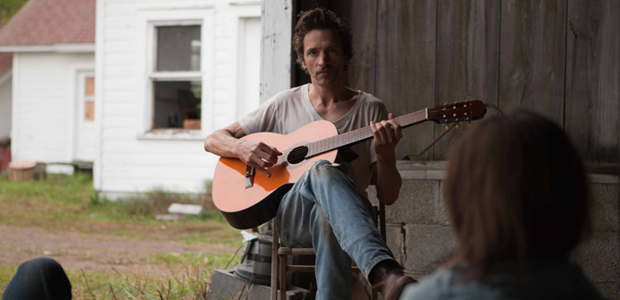
Sean Durkin’s directorial debut has drawn praise for a number of reasons. There’s the poignant yet subtly told tale of two sisters separated by years of distrust. There’s Durkin’s deft narrative style that explores a story of cult dynamics without falling into exploitative or bombastic dramatics. And, of course, there’s newcomer Elizabeth Olsen’s riveting breakthrough performance, alongside oft-menacing but always mesmerizing character actor John Hawkes‘ enthralling follow-up to his Oscar-nominated turn in Winter’s Bone (one of my favorites of last year.) But what’s made this harrowing drama a lock for my top 10 is its haunting sense of unease. You know that strange space between being fully asleep and being awake and alert? That space where you’re not yet sure where you are and what’s real? This is the world in which Durkin and Olsen plant their heroine as she struggles to adjust to life with her affluent sister and brother-in-law after escaping from the lurid grasp of Hawke’s cult leader. It fills the theater with an unshakeable and unsettling atmosphere that overwhelms its audience and lingers, refusing to let you forget what you’ve seen and fear. [My full review.]
9. Happy Happy (Anne Sewitsky)
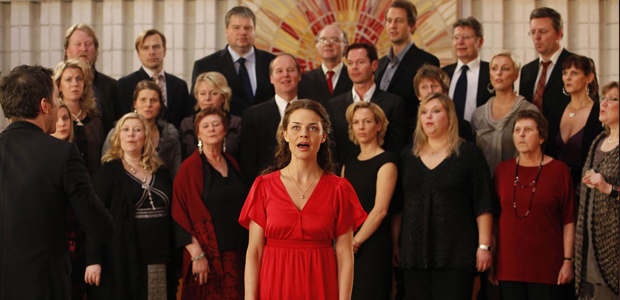
This blistering but sweet comedy out of Norway – with its contemporary setting and low-frills production – draws inspiration from the minimalistic and low-budget aesthetic of the stern Dogme movement. But writer-director Anne Sewitsky rejects Dogme’s more austere elements, instead embracing a vibrant and wild sense of humor that’s grounded in the first world problems of two sets of neighbors plagued by bubbling marital resentment. Sewitsky deftly balances dark subject matter (infidelity, sexual rejection, parental neglect) with cheeky humor that includes cutaways to a sort of modernized Greek chorus made up of four well-dressed white men performing bubbly renditions of old gospel songs. The result is a comedy that is fearlessly irreverent, incredibly funny, weirdly charming and surprisingly insightful. [My full review.]
8. Conan O’Brien Can’t Stop (Rodman Flender)
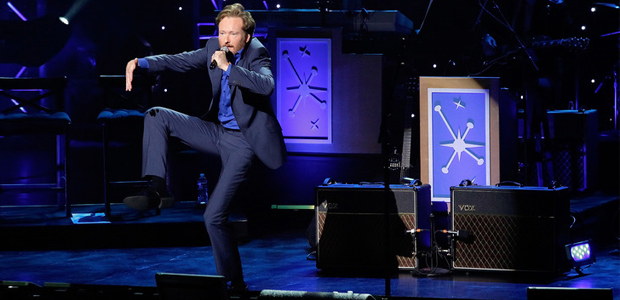
When Conan O’Brien left The Tonight Show, he unexpectedly became an inspiration to hordes of Americans who also felt bullied and victimized by their jobs and saw O’Brien’s resignation as a satisfyingly rebellious and cathartic action. But what does a TV talk show host do after he’s walked away from his dream job and is contractually banned from appearing on television? He goes on tour. In Flender’s dynamic doc, he chases the wild-limbed and bearded comedian from tour dates to press ops to production meetings. And it ain’t always pretty. It’s a revealing look at O’Brien’s complicated relationship with his craft, revealing not only the soaring highs of being before an audience but also the crushing lows of second-guessing every performance. It’s an insight into showbiz we’re rarely granted in such a raw and honest form. It’s one of the best showbiz docs you’ll see, fully encompassing the creative process in a demystified and gripping way. O’Brien is shown close to meltdown, making this oft-hilarious doc hard to watch at points. Yet it’s ultimately inspiring as all of O’Brien’s tireless efforts finally land him back on television, where he belongs.
7. Pariah (Dee Rees)
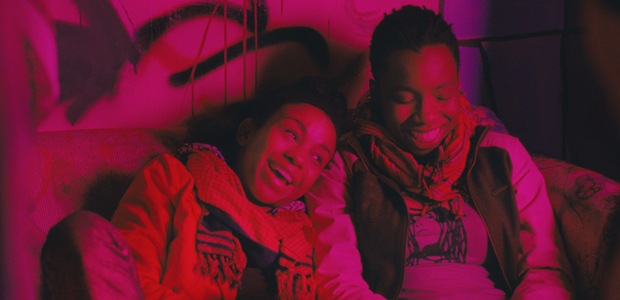
This edgy indie out of Brooklyn tells the tale of a girl coming out to her parents in a way rarely seen – without tearjerker theatrics and shame. Alike (Adepero Oduye), the heroine of this drama, knows she’s gay and her quest is less about getting her parents to accept her than it is figuring out who she is besides her sexuality. First, she mirrors the urban style of her out and proud butch best friend (Pernell Walker), donning shiny ball caps and oversized tees. Later, she mimicks the Afro-pop infused style of her girly-girl crush, a cute and charismatic classmate (Aasha Davis). Identity evolution is common among teen girls, yet rarely is it so relateable onscreen. Oduye nails this arc, deftly maneuvering through Alike’s journey from closeted Daddy’s girl to an independent and fearless young woman. It is a coming-of-age tale told with grace and integrity. Bolstered by raw and naturalistic performances, Pariah will feel familiar no matter where you grew up.
6. Project Nim (James Marsh)
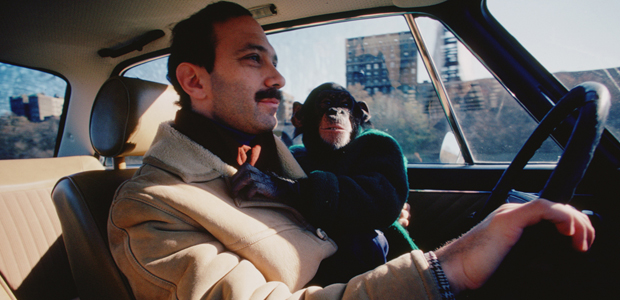
Documentarian James Marsh dazzled audiences in 2008 with his invigorating adventure Man on Wire, which blended heist movie theatrics with playful interviews to tell the bizarre but true tale of the man who walked a tight rope between the World Trade Center’s towers. With his documentary follow-up, Marsh once again takes on a whimsical subject and plumbs its depths to reveal a darker truth about human nature. In this case, the tale is one of a chimp called Nim who was made more than an animal when he was taught sign-language, but treated as less than human once interest in the project ebbed. With a mix of sharp humor, saturated archival footage, macabre re-enactments and curious interviews with Nim’s various handlers/friends, Marsh weaves the bittersweet tale of this poor chimp in a way that draws focus to our own self-centric motivations. Each subject describes Nim on different terms (a child, a test subject, a friend, a fiend), ultimately revealing a sickening truth about mankind’s reckless and capricious ambitions.
5. I Saw the Devil (Jee-Woon Kim)
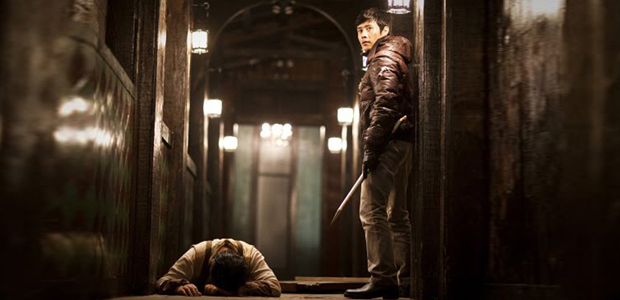
Kim’s Korean revenge thriller took this twisted subgenre to new heights and all-new lows with a tale so full of blood, gore and brutality that it’s sure to sicken even the most hardcore horror fan. And that’s exactly the point. While critics, academics and pop culture commentators bicker about the impact of violence in cinema, Kim presents his own commentary here by paralleling two brands of movie violence. The first, enacted by the feature’s villain (Oldboy star Min-sik Choi), is executed upon defenseless women through misogynistic mutilation and is resoundingly repulsive to the audience. The second form of violence is committed by the film’s vengeance-seeking hero (Byung-hun Lee) who aims to make this horrid murderer pay in an eye-for-an-eye method of retribution. At first, audiences rally around this seemingly righteous violence, but then things begin to shift leaving our “hero” at arc-end in an amoral realm that is disconcertingly similar to his victim. While an excellent choice for a horrifying feature, there’s a lot more to ponder in I Saw the Devil. (My full review.)
4. We Need to Talk About Kevin (Lynne Ramsay)
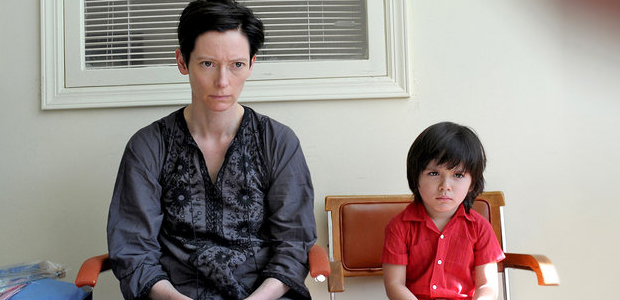
You may have heard that writer-director Lynne Ramsay’s third feature is about a woman trying to cope in the aftermath of the gruesome school massacre her teenage son committed. And yes, that is the plot of We Need to Talk About Kevin, but it’s not really what the film is about. Instead Ramsay, with the help of her incredible and capable leading lady Tilda Swinton, crafts a gut-wrenching study of maternal failing. As ever, Swinton is brilliant and fearless in her portrayal of a potentially loathsome character, in this case Eva Khatchadourian, a mother who does not bond or even like her young son. The time before the massacre is revealed through Eva’s subjective and moody memories informed by her guilt and a desperate need to make sense of the slaughter. A murky and disturbing showdown between Eva and her spiteful little doppelganger begins to surface, all informed by Eva’s grief and guilt. It’s a tale of the dark side of motherhood that is shudder-inducing, heartbreaking and potentially ovary-shriveling. Or maybe that’s just me.
3. The Skin I Live In (Pedro Almodóvar)
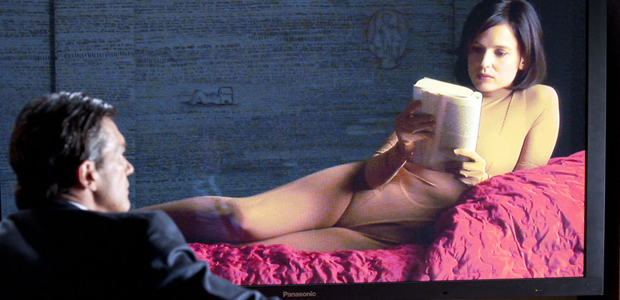
During NYFF, I wrote, “The Skin I Live In may well be Almodóvar’s masterpiece,” as it’s an absolute marvel of genre-blending cinematic spectacle. Flush with lush costume design, luxurious sets and lurid shot compositions, Pedro Almodóvar created a world of radiant color that warns of unspeakable dangers. The plot is likewise better left unspoken, as its deeply shocking turns are a large part of the film’s wow factor. Suffice to say that Almodóvar blends the low brow elements of melodrama and horror to create a thoroughly gripping thriller. His stars, Elena Anaya and Antonio Banderas, share an electric onscreen chemistry and masterfully maneuver through this complicated narrative’s jaw-dropping twists to create one of the most bizarre yet beautiful tales of perseverance and self-discovery ever made. (My full, spoiler-free review.)
2. The Artist (Michel Hazanavicius)
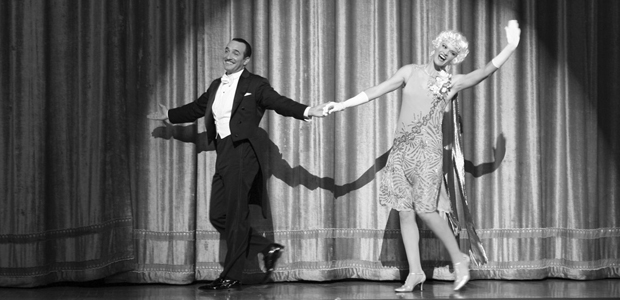
No film this year has filled me with as much sheer joy as The Artist. Despite being a black and white, silent film with American actors in only supporting roles, Michel Hazanavicius’ lush and witty romance has been popping up on plenty of top 10 lists. And for those of you assuming it’s of some snooty critic’s preference for high-minded cinema, let me assure you that while there’s plenty of craftsmanship to admire in The Artist — from its heavily allusive art design and score to its striking cinematography and pitch-perfect performances — the main reason so many critics are singing the praises of this silent film is because it succeeds so well on a purely visual level. French comedian Jean Dujardin stars as a stubborn silent film star who refuses to acknowledge the coming of sound. Without the aid of dialogue, Dujardin gamely carries his performance solely on his mesmerizing countenance. With his captivating confidence, sweet yet sexy appeal and charismatic smile, Dujardin is like a magnificent combination of iconic leading men Gene Kelly and Douglas Fairbanks. It’s a performance that should win him the Oscar, hands down.
1. A Separation (Asghar Farhadi)
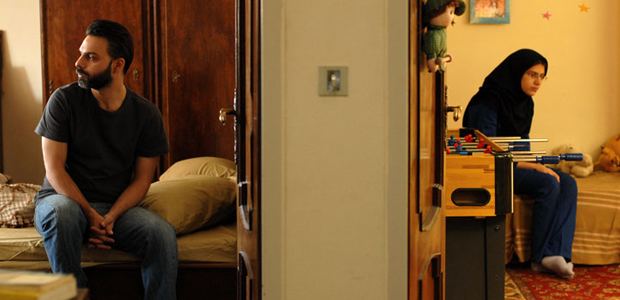
When I first saw Asghar Farhadi’s stirring drama A Separation, I felt compelled to tweet, “The best film of the year may be Iranian.” Since that day, this thoroughly engrossing narrative became the film to which all others of 2011 were compared. Focusing on the tangled interactions of two families in modern day Iran, Farhadi made a film completely specific to his culture, yet universal in its themes. He crafted a tale full of conflict but free of villains that’s performed with a raw energy and penetrating poignancy by its cast. It’s a film of he-said she-said that forces the audience to engage and make of its obscured actions what they will. In the end, who is to blame and the ending itself is all in the eye of the beholder, which is sure to make A Separation a movie people will revisit and talk about for decades. (My full, spoiler-free review.)
Jack Giroux’s Top 10 of 2011
Another year, another heartache inducing top 10 list. These damn things are so hard to compile. The top 5 one always feels comfortable with, while 6-10 keeps you second guessing everyday. There’s plenty of excellent films not on this list – Rampart, War Horse, Melancholia, The Skin I Live In, etc. – but, at the moment, this top 10 is the best representation of what I feel at the moment. In one week, this list will change again and again.
Honorable Mentions:
10. The Ides of March (George Clooney)
This stage adaptation is one of the most tightly and finely-tuned yarns of the year. It’s a drama that moves as sharply as its characters. The Ides of March shows the cynical fall and rise of a hot shot campaign runner. George Clooney didn’t make a film so much about politics, but how easily someone will break their own rules and morals to get ahead.
9. The Tree of Life (Terrence Malick)
Terrence Malick‘s dramatic epic is probably the most flawed film on this list. It’s a mess and bites off more than it can chew. When it’s not overreaching too far from its grasp – which is always admirable, by the way – his tale on life earns its epic dramatic scope. This is a film that gets childhood, quiet beauty and how even though we’re all specs in a gigantic universe, we and our emotions are still big.
8. Martha Marcy May Marlene (Sean Durkin)
Sean Durkin‘s Roman Polanski-inspired horror story effects a viewer like the character, Martha (Elizabeth Olsen), entering the cult. At first it’s an odd experience and you’re not fully sucked in, but the deeper Martha gets into this world, the deeper the audience does as well. This is a haunting film which takes a great deal of patience to feel the full effects.
7. The Guard (John Michael McDonagh)
The Guard is so damn clever. Nearly every joke Sgt. Boyle, who couldn’t be played with more charm and smoothness by Brendan Gleeson, spouts is one to keep in the nerd quote vault. Writer-director John Michael McDonagh off-beat structure and subverted conventions make this an ingenious dark comedy.
6. We Need to Talk About Kevin (Lynne Ramsay)
We Need to Talk About Kevin is hilarious, dark and one of the few dramatically effective horror films in recent memory. Lynne Ramsay‘s return isn’t about who’s at fault – Eva or Kevin – but so much more than that. How Kevin and Eva are alike or not alike leaves one with plenty of questions to ponder. Plus, very few films are as stylistically complete as Kevin. The way shots tie into each other prove the film worthy of repeat viewings.
5. Young Adult (Jason Reitman)
Mavis Gary: socially destructive, emotionally cutoff and someone without a lick of hope. Despite her socially-terroristic tendencies, Mavis is powerfully empathetic. While some find Charlize Theron‘s social pariah the furthest thing from empathetic, her inability to connect with people and feel something is a relatable issue. Young Adult is Jason Reitman‘s and Diablo Cody‘s most invisible and rich work.
4. Drive (Nicolas Winding Refn)
By far the coolest, slickest and most fun film of the year. Danish filmmaker Nicolas Winding Refn made a fast-paced 80s-fueled love story about a quiet samurai set in modern day L.A.. Refn spins enough “job gone bad” conventions for Drive to stand amongst the best of its genre.
3. Tinker, Tailor, Soldier, Spy (Tomas Alfredson)
Tomas Alfredson sure understands loners. His 2008 cult classic Let The Right One In – yes, it’s a modern cult classic already – got the isolation of bullied children. The Swedish director’s “spy thriller” instead shows the isolation of sad, cold, and emotionally damaged spies who just want to be loved. There is no hope for these spies, they are not suave and they’re certainly never going to let anyone into their mindset and in on their feelings, similarly to how the film respectfully treats its audience.
2.Take Shelter (Jeff Nichols)
Like my number one film, this is another feature that cements a brand new and true talent. Director Jeff Nichols’ Shotgun Stories was made on a shoe-string budget that never showed. It’s a great film about protecting one’s family, as is Take Shelter. His Michael Shannon-starring drama is moving and startling.
1. Shame (Steve McQueen)
Steve McQueen‘s follow-up to his excellent breakout film, Hunger, could not have been more proof that this is an artist with his own voice. With Shame, the director left me with my gut wrenched, eyes gushing a bit and the feeling of wanting to be alone. Very few films in recent memory have caused this type of reaction, and yet the film never felt like torture to watch. Shame is highly watchable, thanks to a beautiful New York atmosphere and powerhouse performances. Certainly the finest drama to appear on screen this year.
Raffi Asdourian’s Top 10 of 2011
It’s been a crazy year for me at the movies. It was the first year I got to attend the Sundance Film Festival, where I was bombarded with more movies in one week than I thought humanely possible. This year also heralded my triumphant return to the beaches of southern France as I got to attend my favorite festival of the year, Cannes, for a second time. There I inhaled a bevy of fantastic films that along with some Sundance titles nearly comprise my entire top 10 list. And while I wasn’t bowled over by the beauty of steadicam shots in The Tree of Life, I felt after a second viewing it deserved a honorable mention for its experimental nature.
There was also the Tribeca Film Festival, the New York Asian Film Festival and the New York Film Festival, which rounded out my year along with all the mainstream releases. My list of shame includes none other than Shame, A Separation and Take Shelter, three films I wished I could have seen before finalizing my choices but alas that’s how the dice fall. So without further adieu I give you the top ten films that truly created a cinematic connection with my mind.
Honorable Mentions:
10. Contagion (Steven Soderbergh)
It’s hard to deny the haunting power of Steven Soderbergh’s Contagion. It’s a cold hard look at the bare facts of how efficiently a fatal disease can spread and instantly change the dynamics of our world while taking out half the population in the process. Featuring an ensemble cast who all deliver understated and subtle performances, except maybe Gwyneth Paltrow, and a fantastic score by none other than Cliff Martinez (Drive), Contagion’s real power comes from it’s raw fear of the unknown. Hats off to Soderbergh for not over-dramatizing his direction; the result is a hard-edged and profoundly frightening horror film that will leave you scramming for the hand sanitizer and a hazmat mask.
9. Beyond the Black Rainbow (Panos Cosmatos)
There’s something magical about Beyond the Black Rainbow. Maybe it’s the retro 70s horror/sci-fi vibe, maybe its the psychedelic soundtrack or perhaps its the unforgettable performance of Michael Rogers as Barry Nyle. Combing some old school symbolism and metaphors akin to early Buñuel/Dali or Jordorowsky films wrapped in a cool Technicolor futuristic surrealism, director Panos Cosmatos evokes a mirage of cult films blended into one. Definitely the trippiest and most out-there film of 2011 and for that reason alone, I love it.
8. Into the Abyss (Werner Herzog)
Werner Herzog has perhaps the most fascinating filmography of any filmmaker in existence. From his earlier narrative films with Klaus Kinski, to his plethora of experimental documentaries, including last year’s marvelous Cave of Forgotten Dreams, Herzog goes wherever his cinematic spirit takes him. With Into the Abyss, he explores the bone-chilling nothingness of cold-blooded murder. Using an unusually restrained amount of voice over, Herzog let’s the facts play out while carefully interviewing his subject matters about how a senseless crime could affect so many lives.
7. I Saw the Devil (Jee-woon Kim)
If you have a disinterest of overtly violent films, then I Saw the Devil is not for you. However, if you are like me and are fascinated by immensely dark cinema then look no further than Jee-woon Kim’s twisted take on the revenge horror thriller, amped to 11. Starring none other than Oldboy himself, Min-sik Choi, the film features a bevy of brutally disturbing scenes that are so well-coordinated they feel like an operatic ballet. This film digs its hooks deep in you within the very first scene and just when you think it can’t get any more over the top, it flips the script and leaves you hallucinating about what you just witnessed.
6. The Skin I Live In (Pedro Almodóvar)
Almodóvar has become such a staple in European cinema that it’s hard to overlook the very tropes that the director has become famous for. Despite the expected recipe of eccentric characters at a cross sections of their lives, The Skin I Live In is a surprisingly fresh and twisted take on a traditional formula. The film’s mystery is encased in an alluring sexuality that, when all is revealed, will leave you questioning the nature of your own sexual perceptions. Both brilliantly subversive while being thoroughly entertaining and taut, The Skin I Live In is a morality fairy tale delivered only as Almodóvar can.
5. The Artist (Michel Hazanavicius)
Brimming with undeniable charm, The Artist left a big grin smacked across my face with its expertly-crafted humor that is both a homage to the lost artform of silent film and a contemporary comedy. Michel Hazanavicius directs Jean Dujardin as George Valentin, a charismatic and cocky silent film actor whose career is on the verge of extinction with the advent of talking pictures. It’s a clever parable for some of the pitfalls the industry faces today while being a superb testament to what makes the silent film great. Oh, and did I mention that Uggie is one of the the most awesome film dogs ever?
4. Attack the Block (Joe Cornish)
No film this year satisfied my entertainment factor more than Attack the Block, for its sheer reverence of rebellion while simultaneously being quotably hip and remarkably suspenseful. In many ways its the complete package of what makes a cherished film fun to watch and also rewatchable. Joe Cornish gets amazing performances from a group of newcomers, including leading man John Boyega, while clever lo-fi special effects add a sense of whimsy and fantasy into this Goonies-like adventure. There’s also no denying Edgar Wright’s influence in this film, an awesome thing in its own right.
3. Martha Marcy May Marlene (Sean Durkin)
There is nostalgic reflectiveness to Sean Durkin’s directorial debut Martha Marcy May Marlene that leaves disturbing echoes about identity reverberating in your mind after its over. The film is constructed like a broken jigsaw puzzle being slowly reassembled, while haunted fragments of two different realities blur together. Featuring layered performances by Elizabeth Olsen and John Hawkes, MMMM is a film that feels like something that expert pyschological manipulator Michael Haneke could have directed, proving that Durkin is a true American talent to watch.
2. Being Elmo: A Puppeteer’s Journey (Constance Marks)
One film that warmed my heart more than most was Being Elmo: A Puppeteer’s Journey, which chronicles the life of puppeteer Kevin Clash, who voices the world-famous Sesame Street character Elmo. As Clash endured hardships growing up and making his dream a reality, director Constance Marks takes us into the world of Jim Henson and the creativity and warmth of what makes being a puppeteer magical.
1. Melancholia (Lars von Trier)
Lars von Trier is the equivalent of a cinematic madman. But it’s his crazed genius that has allowed him to make some of the most oddly-compelling films of the last decade. In Melancholia, a state of great depression has manifested in the form of a big blue planet with a mission to deliver a Doomsday apocalypse to the inhabitants of Earth. It’s like a sci-fi existential Chekov play punctuated by brilliant imagery from one of cinemas most misunderstood tortured souls. Operatic with its grandeur and unashamed in its willingness to be pessimistic, Melancholia is the work of true artist coming to terms with the acceptance of his own demise.
Danny King’s Top 10 of 2011
10. The Descendants (Alexander Payne)
Alexander Payne travels to Hawaii in his first film in seven years and gives George Clooney, who is the film’s outstanding, stripped-down core every step of the way, the most down-to-earth role of his career. Payne‘s script, aided by co-writers Nat Faxon and Jim Rash, fuses comedy and drama in a way that makes the majority of something like 50/50, a solid film in its own right, look like child’s play. The performances, though, will always be the prime talking point here, from Clooney‘s intimate lynchpin to Shailene Woodley‘s straight-arrow troubled teen. A pitch-perfect Judy Greer and an appropriately sour Robert Forster bring ace supporting work to the party. Each scene is filled with surprises.
9. Into the Abyss (Werner Herzog)
Werner Herzog‘s penetrative look at a senseless triple homicide that took place in Conroe, Texas in 2001, and the death-penalty repercussions that have developed since the crime was committed. Herzog skillfully projects an objective perspective while, at the same time, never straying from his pro-life stance on the issue of capital punishment. The father of Jason Burkett, one of the two murderers currently in the midst of a life sentence, gives a series of testimonies that just about tore me to pieces with their cruel, devastating honesty. He defines the crux of the film’s smacking impact – the off-camera Herzog trying to represent hope while everything he’s filming is ruined by monumental sadness and despair.
8. Take Shelter (Jeff Nichols)
An outstanding sophomore excursion for Jeff Nichols, anchored by a Michael Shannon performance of powerhouse proportions. Nichols’ film would be good enough if it were simply an unsolvable, angst-ridden portrait of psychological obsession, but that it adds a scarring message regarding generational ties during its searing climax lifts it to legitimate heights. Other people will probably take away different interpretations from the film, which is completely acceptable by design, but what I personally gathered from that storm-shelter apex will stick with me like a splinter.
7. Drive (Nicolas Winding Refn)
Nicolas Winding Refn‘s luxuriously mounted neo-noir is a significant directorial accomplishment, one that takes a so-so screenplay from Hossein Amini and somehow comes out on the other end with a deliriously savvy, inexplicably moving piece of filmmaking. That such a seemingly lightweight story could be transformed into a bull-headed rush of charged emotion remains one of the year’s great mysteries, as well as one of its miracles. Ryan Gosling is in full-throttle movie-star mode, saying little but emoting boatloads. That’s also, in a nutshell, the film’s idiosyncratic impact.
6. Shame (Steve McQueen)
Steve McQueen‘s threatening examination of a New York sex addict, played with remarkable force and intensity by Michael Fassbender. Carey Mulligan is every bit his equal as the bruised, apartment-hopping sister. This is daring subject matter that would ultimately be only that if McQueen‘s direction wasn’t so sure-handed and powerful. Abi Morgan‘s screenplay, co-written with McQueen, is an achievement for its character-arc subtlety and the quiet twists it pulls on the addiction genre. Harry Escott riffs together an evocative score that plays over a bravura opening sequence. I was hooked and never released.
5. Margaret (Kenneth Lonergan)
Kenneth Lonergan‘s Margaret has endured a winding, convoluted route to the big screen – it was a filmed over a half-decade ago – but it has at last arrived in theaters, courtesy of a rare mishandling by the folks at Fox Searchlight, who understandably tried to dump the film away with a week-long limited release. Those who have seen the film, however, have voiced their appreciation, and a year-end resurgence is brewing for the inspired, 150-minute gem. Anna Paquin, who’s gained popularity by now as a result of HBO’s True Blood, gives a tour-de-force leading performance here, one that should be sweeping up Best Actress awards with absolute ease. Lonergan‘s vision is a firehouse of dense, lofty implications, and not all of it flows together seamlessly, but it’s bolstered by a determined ensemble and a closing shot that is easily among the year’s finest compositions.
4. We Need to Talk About Kevin (Lynne Ramsay)
Lynne Ramsay‘s adaptation of Lionel Shriver‘s best-seller is a minefield of brazen directorial decisions, from the amplified sound design – a sprinkler has never meant so much – to the offbeat soundtrack choices and the deft, potent merging of past and present timelines. Tilda Swinton offers a fragile, perceptive performance that, like the film, haunts with its confusion and ambiguity. Ezra Miller, meanwhile, in the title role, is spookily effective in slicing together one of the more deranged, compelling characters of the year. The film is ultimately a shattering piece of storytelling, but the spellbinding nature of Ramsay‘s approach will leave you oddly exhilarated, even while the most grim of imaginable events are presented.
3. A Separation (Asghar Farhadi)
Asghar Farhadi‘s acclaimed film from Iran is so many things wrapped up in a single piece of moviemaking: a dazzlingly-layered mystery, a piercing depiction of divorce, an observation of the justice system, a slicing challenge of the trust that a daughter has for her father. The staggering Farhadi screenplay is given fiery weight by a uniformly brilliant ensemble packed with rich, humane characters. Above all, it’s simply a benchmark of top-notch storytelling, masterfully plotted and thematically realized.
2. Moneyball (Bennett Miller)
After 2010’s The Social Network, Aaron Sorkin is once again responsible for the year’s best adapted screenplay. This time around he’s co-writing with Steven Zaillian, and together they weave a story that percolates vibrantly with ideas and emotion. Director Bennett Miller, previously of Capote fame, takes themes that could’ve been filmed with chilly reserve – numbers versus intuition, spreadsheets versus hand-drawn scorecards, professional obsession – and gives them a unique, poignant humanity. Brad Pitt and Jonah Hill are in peak form, playing characters that have too many dimensions to count.
1. The Tree of Life (Terrence Malick)
The fifth feature-length outing for the preeminently-gifted Terrence Malick, and certainly one of the most ambitious directorial efforts of the past quarter century. I was completely swept up by the unparalleled scale of the film, in addition to the towering beauty of Emmanuel Lubezki‘s year-best cinematography. The incongruous inclusion of Sean Penn and the Douglas Trumbull-designed cosmos sequence are the places where The Tree of Life will divide viewers, but almost everyone can agree than the intimacy of Malick‘s depiction of 1950s family life in Waco, Texas – beautifully acted by Brad Pitt, Jessica Chastain, youngster Hunter McCracken, and others – leaves a lasting, meaningful stamp. I cherish every minute of the picture, flaws and all, and eagerly await any extended cuts that may come our way.
Jared Mobarak’s Top 10 of 2011
If anyone tells you 2011 was a bad year for cinema, stop in your tracks, turn around and walk away without ever looking back. They have no idea what they’re talking about. With a wealth of quality films from bonafide auteurs devoid of source material, the sheer amount of original work is astonishing. The trend for remakes will most likely never end, but it’s good to know artists in and out of the Hollywood system are fearlessly treading their own path to make movies exciting again. And with selections like The Artist, Tinker Tailor Soldier Spy, Pariah, Into the Abyss, and more still yet to be seen by me, 2011 will continue to carry on a few months more.
Honorable Mentions:
10. Martha Marcy May Marlene (Sean Durkin)
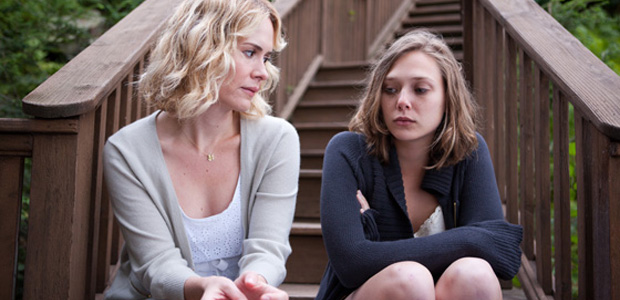
Jumping from a place of suffering and the safe haven unable to be so for the girl shifting between them, the tale of Elizabeth Olsen‘s Martha is one of mystery and sorrow. Seamlessly transitioning between past and present, dream and reality, this young woman is lost amidst the insecurity of living free from the psychological restraints she’s never been without. Martha always needed to build a shield against the pains her world threw at her and unsurprisingly is consumed by John Hawkes‘ soothing voice and fantasies of love. Fleeing his cult’s physical prison is unable to loose her from his masquerading evil. Olsen is revelatory in her attempts to forget and reassimilate into a place of love, but her prevalent troubles only strain the one relationship that can save her. We may be able to escape the puzzle, but Martha will forever be trapped in the rabbit hole.
9. Beginners (Mike Mills)
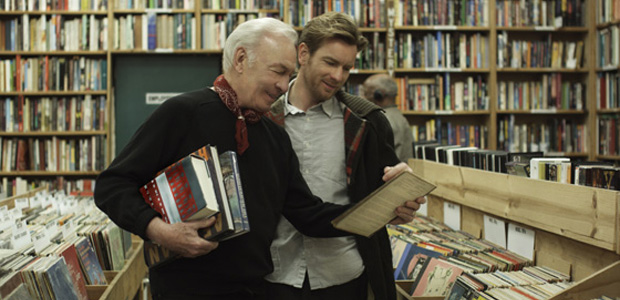
Rebirth as comedy, reinvention as drama—Mike Mills does it all as he pulls the curtain on the simplicity of life and its ability to keep going. Authentic whimsy mingled with realistic sadness, the emotional scale is tipped back and forth with every voiceover action of Ewan McGregor‘s Oliver. Love is discovered at the crossroads, a new chapter is begun with hope. We all carry baggage around, the scars refusing to let us release the weight. Sometimes we need examples to show us meaning and to cultivate a desire to be better whether we opened our eyes as they happened or do so in remembering when the person is gone. Christopher Plummer steals the show as this larger-than-life model for finding happiness no matter age or circumstance and paired with Cosmo the Jack Russell terrier helps give the film a sense we can all achieve a bliss.
8. Midnight in Paris (Woody Allen)

Admittedly a novice in the ways of Woody Allen, having neglected his earlier classics thus far on my cinematic journey, I couldn’t have asked for a better example of his genius to reinvigorate my desire to go back and watch them all. Too charming to be considered slight, this fantasy smorgasbord of literary greats arriving to give Owen Wilson‘s Gil the authentic Parisian experience will delight from front to back. It is art versus commercialism, aristocratic ignorance against the artistic elite’s intelligence and a joy for living that overpowers the materialism of comfortability. Interspersed by the inspired inclusion of Gad Elmaleh‘s broadly-humored private detective caught in the time traveling antics, you’ll begin to wonder whether the film is full-on fantasy or merely the dreams of an overwhelmed American. Magic is in the air and Allen has captured it to give the biggest crowd-pleaser of the year.
7. Rundskop [Bullhead] (Michael R. Roskam)
![Rundskop [Bullhead]](https://thefilmstage.com/wp-content/uploads/2011/12/jared-bullhead.jpg)
There’s so much talk about how Michael R. Roskam beat out the Dardennes for his country’s foreign film Oscar nomination that I feel the actual quality of the work itself is left behind. Centering on the Flemish steroid trade and the farm-owning mob families in control of the supply, this directorial debut is astonishingly assured, intelligent and completely gripping. Matthias Schoenaerts‘ portrayal of antihero Jacky Vanmarsenille is brutally menacing with vulnerability only understood once past secrets are uncovered through fate’s sick humor of reintroducing old friends and acquaintances just as the police are tightening their grip. A character piece above all else, it’s a gangster film deserving to be included in the same breath as greats of the genre. This is what I wanted Gomorrah to be.
6. 50/50 (Jonathan Levine)
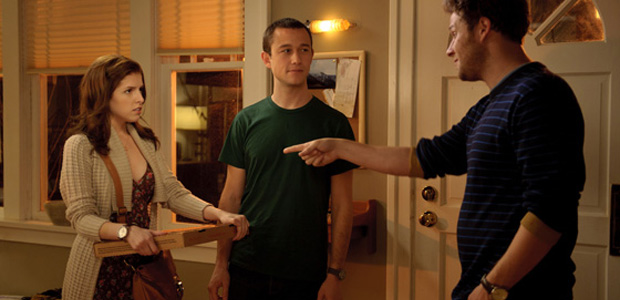
Equal parts devastatingly poignant and charmingly hilarious, Will Reiser‘s tale of his own battle with cancer can’t help but win you over. Chock-full of hope alongside the despair inherent in the unknown, the subjects of coping with loss and death are dealt with in a positive light amidst the chaotic tornado such news spins to destroy. Joseph Gordon-Levitt gives one of his best performances—not an easy task considering his stellar career—and Seth Rogen puts aside his boisterousness for an endearing façade of humor covering the tumultuous fear resting underneath. The affliction at the core is hardly the only struggle awaiting Adam (Gordon-Levitt), but it does put the others in perspective. Looking at the myriad reactions taking over his surrounding circle—the strong mother, weak girlfriend, compassionate doctor and optimistic friend—only bolsters authenticity and helps earn its moment of tear-streaked catharsis.
5. Oslo, 31. August [Oslo, August 31st] (Joachim Trier)
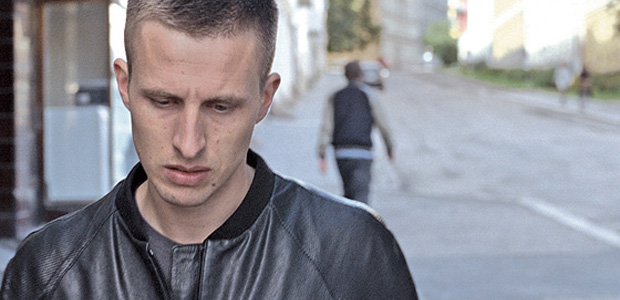
So many of us move away with the inevitability of returning to our hometown to bask in the familiar and appreciate the memories it bred. In that regard, Joachim Trier‘s newest film is a snapshot glimpse into his own—Oslo, Norway. Rather than make the journey one of joy, however, our entrance into the world onscreen is through a recovered drug addict come home to ask forgiveness and say goodbye. Melancholic from front to back, he’s treated with empty words of counting one’s blessings or understanding the worth his life still holds. Anders wants it all to be true, but his attempt at achieving normalcy only makes his inability to do so more glaringly pronounced. A powerful work of emotion and aesthetic, this tale of life and death’s coexistence atop one another shows the darkness resting inside a troubled soul. But if the people around him couldn’t prevent his demise before, what would be different the second time around? Sometimes happiness is too high a cost.
4. We Need to Talk About Kevin (Lynne Ramsay)
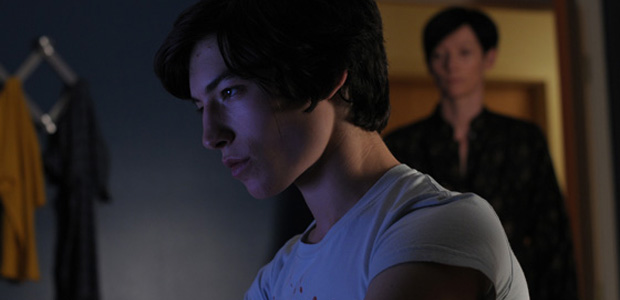
The guilt of a parent unable to comprehend why her son would commit a heinous crime not only makes Eva remember the tell-tale signs to such horrors but also the role she played in creating this monster. Always calculating and manipulating, I believe young Jasper Newell deserves as much praise as Ezra Miller in portraying the cold stillness of a sociopath setting up his game pieces in anticipation of watching them fall. Tilda Swinton is amazing—a mother witnessing this troubled child from conception as he grew into a cancer forever looking to torture and ruin her happiness. Left to reap the abuse that should direct towards her spawn, memory holds no answers except to illuminate her own flawed existence. The full scope of what occurs will only crush your optimism in mankind to oblivion.
3. Shame (Steve McQueen)
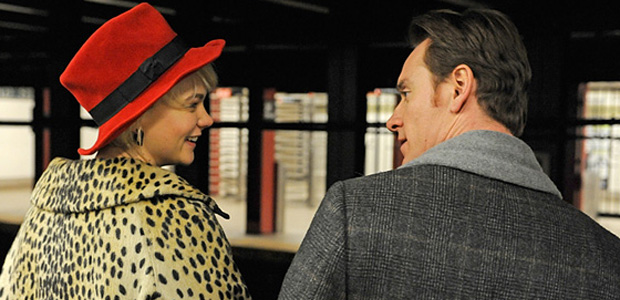
Sit down DiCaprio and Scorsese, Steve McQueen and Michael Fassbender have cemented themselves as cinema’s new power-duo. In this masterful vision of compulsion, sexuality and the roughness of emotion, Brandon (Fassbender) sleepwalks through his life on a quest to fill an unquenchable void within him. Distant and distracted at all times, he tries to become one of the masses—to rein in his urges—but never can make the sacrifices necessary to do so. Estranged from a sister who needs nothing but the love of family and closed off to any hope of a meaningful relationship due to his incapacity to she humanity as anything but vessels to satisfy his desires, his spiral into despair culminates in the most riveting climactic scenes of the year. Fierce, uncompromising, and always honest in its portrayal, Brandon’s shame may never overturn his need to feed.
2. Melancholia (Lars Von Trier)
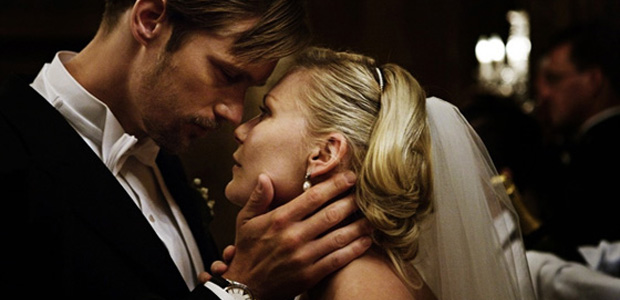
The end of the world never looked more attractive. A tome on mankind’s malaise and inability to fight for a future forever ending in death, we all discover we have the time to change. We can patch up broken relationships with family, uncover the brilliance of simplicity and the sumptuous chaos of excess, and turn our never-ceasing pain into joy if only we try. In the end, we’ll all die alone—this is inevitable. But through Von Trier‘s still-moving paintings, the fairy tale wedding of nightmare and the cataclysmic resolve of hubristic lives caught in the headlights of fate’s final crash we realize how tiny our existence is. We aren’t any more special than other creatures living and breathing alongside us. We become Kirsten Dunst‘s broken princess and Charlotte Gainsbourg‘s protective mother unable to make good on the promise of a parent’s safety. We live and die, hoping our journey might leave the smallest of marks in the universe.
1. The Tree of Life (Terrence Malick)
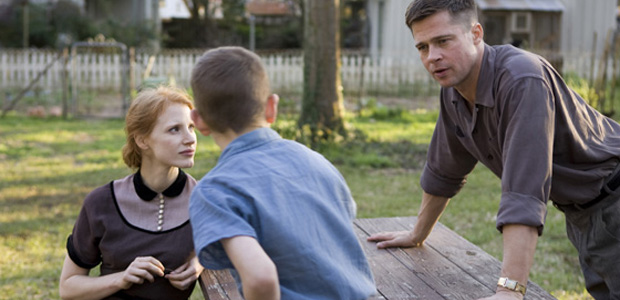
There isn’t much that needs to be said. Poetic, mesmerizing, thought-provoking and beautiful. This is all-encompassing cinema from a filmmaker with meticulous style and vision. Wonderful performances from Brad Pitt, Jessica Chastain and Hunter McCracken highlight a story as micro-specific to 1950s southern living as it is universal to the entire duration of Earth’s existence. Love, loss, family, pain and sorrow all mix together in accord to play an orchestral masterpiece we listen to with our eyes. As gorgeous a film as you’ll ever see, it’s fearless ability to speak in metaphor and question proves Malick is an artist to reflect upon and cherish.
The Film Stage’s Best Films of 2011
[Jordan Raup] [Dan Mecca] [Nick Newman] [Kristy Puchko]
[Jack Giroux] [Raffi Asdourian] [Danny King] [Jared Mobarak]
Follow: Our 2011 Year-End Features

